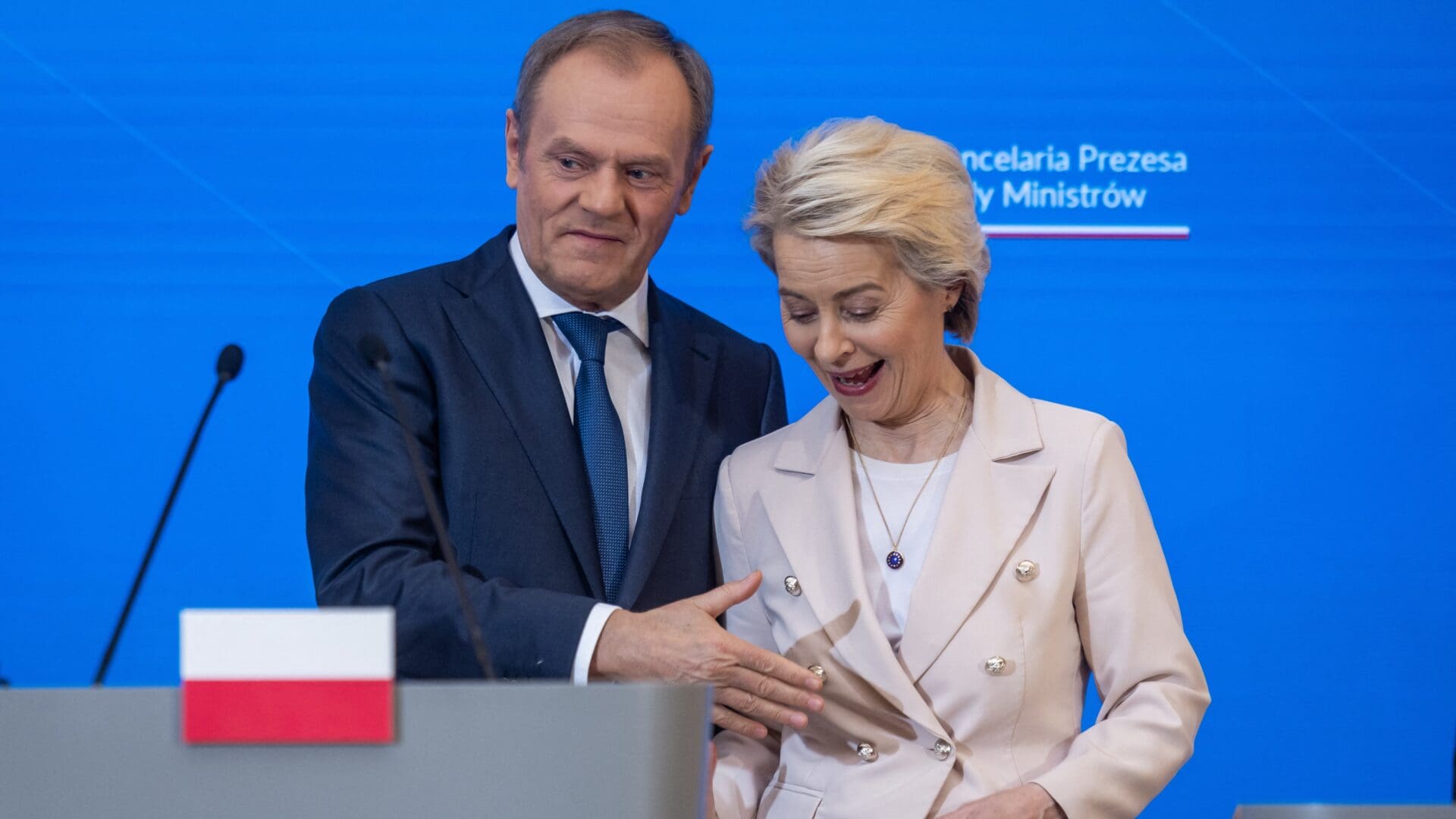Ursula von der Leyen has announced her intention to be the candidate of the European People’s Party for a new term leading the European Commission. The German politician confirmed this at an event organized by her party, the CDU, this week: ‘I am making a very conscious and well-considered decision: I would like to run for a second term.’
‘We have been through a lot together in the last five years, and I believe it is fair to say that we have achieved more than we could have ever imagined. In these five years, not only has my passion for Europe grown but also, of course, my experience in what this Europe can achieve for its people,’ she added in a dialogue with the press.
Von der Leyen has a strong chance of remaining in office after the European Parliament elections in June,
as according to all polls, the EPP would once again be the leading force and has the support of most governments, including those of Spain and Germany.
However, the position of the President of the European Commission is part of the ‘distribution of mandates’ after the EP elections, and must be approved by the European Parliament as well.
Von der Leyen was elected in 2019, thanks to an agreement between the member states’ governments, particularly the French and the German, after a series of vetoes prevented Manfred Weber, the European People’s Party candidate for the European Parliament, and Frans Timmermans, a Social Democrat, from standing. The outcome of the negotiations was a consensus around the name of Von der Leyen, who was formerly Angela Merkel’s defence minister and has since been referred to as Europe’s ‘Ursula majority’.
The EPP leadership intends to change the policy Von der Leyen has pursued for the past five years. The populists have distanced themselves from the European Commission over the past year, boycotting key measures of the European Green Deal such as the ‘Nature Restoration Law’, and their election programme proposes to continue along the same lines, for example by, overturning the absurd ban on the sale of internal combustion engine cars from 2035.
Von der Leyen, who made the green agenda a central point of her mandate, essentially to win the support of the Social Democrats after the Greens’ rise in the 2019 elections, has now given some signs of backing down. In the face of agricultural protests across the continent, for example, she recently announced the withdrawal of a law that the EU had proposed to reduce the use of chemical pesticides by 50 per cent.
The Social Democrats intend to present Luxembourgish politician Nicolas Schmit, European Commissioner for Jobs and Social Rights, effectively the only aspirant, for the candidacy. His low profile reflects the fact that the Party of European Socialists does not have high hopes for the leadership of the European Commission. As for the Greens, Germany’s Terry Reintke and the Netherlands’ Bas Eickhout will be in the running.
As things stand, the only prime minister who could oppose Von der Leyen’s candidacy is Viktor Orbán of Hungary.
Von der Leyen’s government has frozen billions of euros in cohesion and recovery funds to Hungary for ‘violating the rule of law’ and has launched a series of blackmail procedures to make the country submit to the EU’s whims. The latest case, focusing on the ‘sovereignty law’, was launched earlier this month.
At a recent Fidesz–KDNP parliamentary group meeting, the Hungarian head of government stated: ‘We can and will win the European Parliament elections.’ The Prime Minister expressed optimism that in 2024 there is a prospect of change not only in Brussels but also in Washington.
This scenario further underlines the importance for the right-wing conservative forces to achieve a good electoral result in the upcoming European elections in order to make the necessary turn towards a Union that is closer to the real needs of European citizens.








